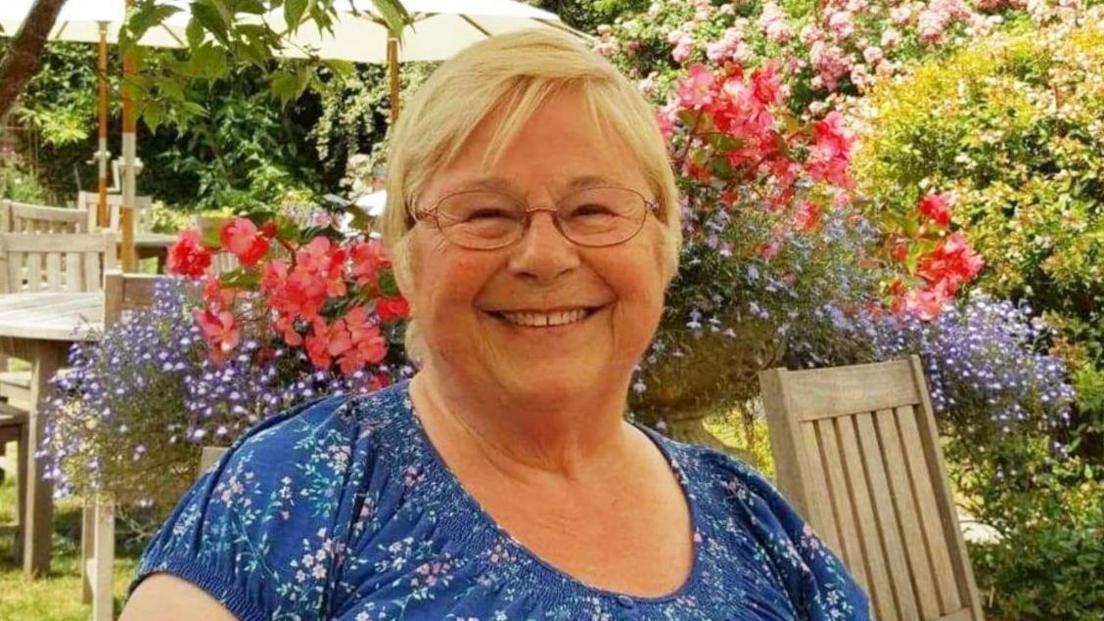Woman's intensive care transfer too late - inquest

Gwynneth Exall, 79, died a day after a hip replacement at Nuffield Health Vale Hospital
- Published
A 79-year-old woman who died of complications following hip surgery should have been taken to intensive care hours earlier than she did, an inquest has heard.
Gwynneth Exall from Swansea died of cardiac arrest on 28 April 2022, one day after a hip replacement procedure at Nuffield Health Vale Hospital.
She had sought private treatment to avoid having to wait for an operation on the NHS.
But the inquest heard that her blood pressure and urine levels had been low after the surgery on 27 April, before her condition deteriorated the following day.
Woman died after private hip operation - inquest
- Published2 December 2024
Widow calls for greater private care transparency
- Published13 February 2024
Error saw cancer patient go year without check-up
- Published26 January 2024
On the second day of the hearing in Pontypridd, the inquest heard from expert witness Dr Mark Raper, an intensive care consultant at University Hospital of Wales, Cardiff.
Medical records indicated that Ms Exall already had low blood pressure, but Dr Raper said that a further slight drop in the hours after surgery would not be "uncommon".
She was given fluids, and drugs to treat hypotension, but by 08:00 GMT the following morning her blood pressure continued to be around the low 60s.
"That sort of blood pressure would worry me," Dr Raper told the inquest, adding: "The trend [was] either not improving, or going downwards."
Asked if the hospital should, at that point, have called an ambulance to take Ms Exall to an intensive care unit, Dr Raper replied that it would have been "entirely appropriate".
He added that the low urine output also suggested fluid was being "redistributed to the tissue or the lungs" and that this may also have contributed to cardiac issues.
Calls were eventually made to the ambulance service in the afternoon, and Ms Exall was transferred to the University Hospital of Wales (UHW), but she died later that evening.
Helen Pipe, a nurse at Nuffield Health Vale Hospital, told the inquest that she had discussed Ms Exall's low blood pressure with Dr Subramanian Balachandran, the anaesthetist working on 28 April.
Ms Pipe added that when Ms Exall's condition had deteriorated at about 14:00 "she needed immediate treatment, which we could do on site".
"She was too poorly at that stage to transfer out," she said. "We were treating her."
Ms Pipe later phoned the ambulance service, who treated Ms Exall before she was transported to UHW.
The coroner Patricia Morgan also read out a statement from another nurse, Teresa Stow, who said that Ms Exall had been chatty and showed no sign of distress the previous evening.
"I didn't feel that Gwynneth was so unwell overnight that she needed to be transferred," she said.
The inquest continues.